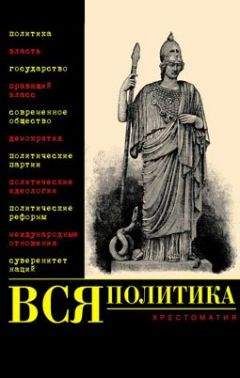internal function created is something like a “psychologist”,
and it doubtless takes advantage of the above-described psy-
chological knowledge collected by psychopaths.
It should be noted that certain of these exclusionary steps
taken by a group in the process of ponerization, should have
been taken against deviants by the ideological group in the
beginning. So rigorous selective measures of a psychological
kind taken by a group is not necessarily an indicator that the
group is ponerogenic. Rather one should carefully examine
what the psychological selection is based on. If any group
seeks to avoid ponerization, it will want to exclude individuals
with any psychological dependence on subjective beliefs, rites,
rituals, drugs, and certainly those individuals that are incapable
of objectively analyzing their own inner psychological content
or who reject the process of Positive disintegration.
In a group in the process of ponerization, spellbinders take
care of “ideological purity”. The leader’s position is relatively
secure. Individuals manifesting doubt or criticism are subject to
paramoral condemnation. Maintaining the utmost dignity and
84 It should also be mentioned that the same process occurs when a psycho-
logical deviant is thrown out of a group of normal people. The way to tell the
difference is that a normal group ejecting a deviant will not seek to exact
revenge on the ejected member, while the deviant will seek revenge on the
group he has been ejected from. [Editor’s note.]
172
PONEROLOGY
style, leadership discusses opinions and intentions which are
psychologically and morally pathological. Any intellectual
connections which might reveal them as such are eliminated,
thanks to the substitution of premises operating in the proper
subconscious process on the basis of prior conditioned reflexes.
An objective observer might wish to compare this state to one
in which the inmates of an asylum take over the running of the
institution. The association enters the state wherein the whole
has donned the mask of ostensible normality. In the next chap-
ter, we shall call such a state the “dissimulative phase” with
regard to macrosocial ponerogenic phenomena.
Observing the appropriate state corresponding to the first
ponerological criterion - the atrophy of natural critical facul-
ties with respect to pathological individuals - requires skillful
psychology and specific factual knowledge; the second, more
stable phase can be perceived both by a person of average rea-
son and by public opinion in most societies. The interpretation
imposed, however, is unilaterally moralistic or sociological,
simultaneously undergoing the characteristic feeling of defi-
ciency as regards the possibility of both understanding the phe-
nomenon and counteracting the spread of said evil.
However, in this phase a minority of social groups tend to
consider such a ponerogenic association comprehensible within
the categories of their own world view and the outer layer of
diffusing ideology as a doctrine acceptable to them. The more
primitive the society in question, and the further removed from
direct contact to the union affected by this pathological state,
the more numerous such minorities would be. This very period,
during which the customs of the union become somewhat
milder, often represents simultaneously its most intensive ex-
pansionist activity.
This period may last long, but not forever. Internally, the
group is becoming progressively more pathological, finally
showing its true qualitative colors again as its activities become
ever clumsier. At this point, a society of normal people can
easily threaten ponerologic associations, even at the macroso-
cial level.
POLITICAL PONEROLOGY
173
Macrosocial Phenomena
When a ponerogenic process encompasses a society’s entire
ruling class, or nation, or when opposition from normal people
is stifled -- as a result of the mass character of the phenomenon,
or by using spellbinding means and physical compulsion, in-
cluding censorship -- we are dealing with a macrosocial pone-
rologic phenomenon. In such a case, however, a society’s trag-
edy, often coupled with that of the researcher’s own suffering,
opens before him an entire volume of ponerologic knowledge,
where he can read all about the laws governing such a process
if he is only able to familiarize himself in time with its natural-
istic language and its different grammar.
Studies in the genesis of evil which are based on observing
small groups of people can indicate the details of these laws to
us. However, it might be thought that this would present a
warped picture that is dependent upon various environmental
conditions which are further dependent on the historical period
in question; this is the backdrop to the phenomena observed.
Nevertheless, such observations may enable us to hazard a
hypothesis to the effect that the general laws of ponerogenesis
may be at least analogous, regardless of the quantity and scope
of the phenomenon in time and space. They do not, however,
permit verification of such a hypothesis.
In studying a macrosocial phenomenon, we can obtain both
quantitative and qualitative data, statistical correlation indices,
and other observations as accurately as might be allowed by the
state of the art in science, research methodology, and the obvi-
ously very difficult situation of the observer.85 We can then use
the classical method, hazarding a hypothesis and then actively
searching for facts which could falsify it. The wide-spread
causative regularity of ponerogenic processes would then be
confirmed within the bounds of the above-mentioned possibili-
ties. This is, in fact, what the author and his colleagues under-
took to do. It is astonishing how neatly causative regularity of
ponerogenic processes observed in small groups govern this
macrosocial phenomenon. The comprehension of the phe-
85 Assuming that one can gather this information and survive the gathering!
[Editor’s note.]
174
PONEROLOGY
nomenon thus acquired can serve as a basis for predicting its
future development, to be verified by time. It is in close and
careful observation, and only after time passes, that we become
aware that the colossus has an Achilles heel after all.
The study of macrosocial ponerogenic phenomena meets
with obvious problems: their period of genesis, duration, and
decay is several times longer than the researcher’s scientific
activity. Simultaneously, there are other transformations in
history, customs, economics, and technology; however, the
difficulties confronted in abstracting the appropriate symptoms
need not be insuperable, since our criteria are based on eternal
phenomena subject to relatively limited transformations in
time.
The traditional interpretation of these great historical dis-
eases has already taught historians to distinguish two phases.
The first is represented by a period of spiritual crisis in a soci-
ety,86 which historiography associates with exhausting of the
ideational, moral, and religious values heretofore nourishing
the society in question. Egoism among individuals and social
groups increases, and the links of moral duty and social net-
works are felt to be loosening. Trifling matters thereupon
dominate human minds to such an extent that there is no room
left for thinking about public matters or a feeling of commit-
ment to the future. An atrophy of the hierarchy of values within
the thinking of individuals and societies is an indication
thereof; it has been described both in historiographic mono-
graphs and in psychiatric papers. The country’s government is
finally paralyzed, helpless in the face of problems which could
be solved without great difficulty under other circumstances.
Let us associate such periods of crisis with the familiar phase in
social hysterization.
The next phase has been marked by bloody tragedies, revo-
lutions, wars, and the fall of empires. The deliberations of his-
86 Sorokin, Pitirim. (1941). Social and Cultural Dynamics, Volume Four:
Basic Problems, Principles and Methods, New York: American Book Com-
pany. Sorokin, Pitirim. (1957). Social and Cultural Dynamics, One Volume
Revision. Boston: Porter Sargent. Simonton, Dean Keith. (1976). “Does
Sorokin’s data support his theory?: A study of generational fluctuations in
philosophical beliefs.” Journal for the Scientific Study of Religion 15: 187-
198.
POLITICAL PONEROLOGY
175
torians or moralists regarding these occurrences always leave
behind a certain feeling of deficiency with reference to the
possibility of perceiving certain psychological factors dis-
cerned within the nature of phenomena; the essence of these
factors remains outside the scope of their scientific experience.
A historian observing these great historical diseases is
struck first of all by their similarities, easily forgetting that all
diseases have many symptoms in common because they are
states of absent health. A ponerologist thinking in naturalistic
terms tends to doubt that we are dealing with only one kind of
societal disease, thereby leading to a certain differentiation of
forms with regard to ethnological and historical conditions.
Differentiating the essence of such states is more appropriate to
the reasoning patterns we are familiar with from the natural
sciences. The complex conditions of social life, however, pre-
clude using the method of distinction, which is similar to etio-
logical criterion in medicine: qualitatively speaking, the phe-
nomena become layered in time, conditioning each other and
transforming constantly. We should then rather use certain
abstract patterns, similar to those used in analyzing the neurotic
states of human beings.
Governed by this type of reasoning, let us here attempt to
differentiate two pathological states of societies; their essence
and contents appear different enough, but they can operate
sequentially in such a way that the first opens the door to the
second. The first such state has already been sketched in the
chapter on the hysteroidal cycle; we shall adduce a certain
number of other psychological details hereunder. The next
chapter shall be dedicated to the second pathological state, for
which I have adopted the denomination of “pathocracy”.
States of Societal Hysterization
When perusing scientific or literary descriptions of hysteri-
cal phenomena, such as those dating from the last great in-
crease in hysteria in Europe encompassing the quarter-century
preceding World War I, a non-specialist may gain the impres-
sion that this was endemic to individual cases, particularly
among woman. The contagious nature of hysterical states,
176
PONEROLOGY
however, had already been discovered and described by Jean-
Martin Charcot87.
It is practically impossible for hysteria to manifest itself as a
mere individual phenomenon, since it is contagious by means
of psychological resonance, identification, and imitation. Each
human being has a predisposition for this malformation of the
personality, albeit to varying degrees, although it is normally
overcome by rearing and self-rearing, which are amenable to
correct thinking and emotional self-discipline.
During “happy times” of peace dependent upon social injus-
tice, children of the privileged classes learn to repress from
their field of consciousness the uncomfortable ideas suggesting
that they and their parents are benefitting from injustice against
others. Such young people learn to disqualify disparage the
moral and mental values of anyone whose work they are using
to over-advantage. Young minds thus ingest habits of subcon-
scious selection and substitution of data, which leads to a hys-
terical conversion economy of reasoning. They grow up to be
somewhat hysterical adults who, by means of the ways ad-
duced above, thereupon transmit their hysteria to the next gen-
eration, which then develops these characteristics to an even
greater degree. The hysterical patterns for experience and be-
havior grow and spread downwards from the privileged classes
until crossing the boundary of the first criterion of ponerology:
the atrophy of natural critical faculties with respect to patho-
logical individuals.
When the habits of subconscious selection and substitution
of thought-data spread to the macrosocial level, a society tends
87 Jean-Martin Charcot (1825 - 1893) French neurologist. His work greatly
impacted the developing fields of neurology and psychology. Charcot took an
interest in the malady then called hysteria. It seemed to be a mental disorder
with physical manifestations, of immediate interest to a neurologist. He
believed that hysteria was the result of a weak neurological system which
was hereditary. It could be set off by a traumatic event like an accident, but
was then progressive and irreversible. To study the hysterics under his care,
he learned the technique of hypnosis and soon became a master of the rela-
tively new "science." Charcot believed that a hypnotized state was very
similar to a bout of hysteria, and so he hypnotized his patients in order to
induce and study their symptoms. He was single-handedly responsible for




